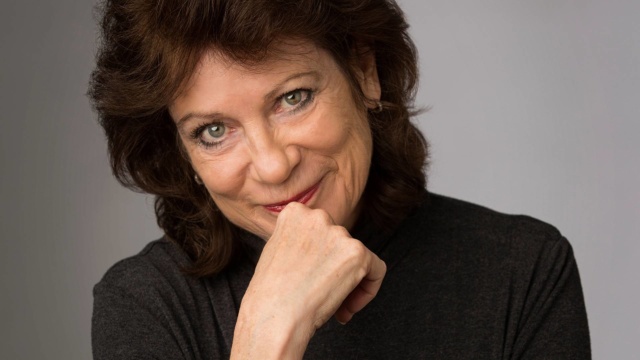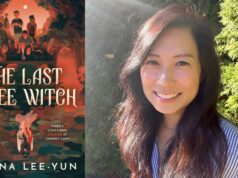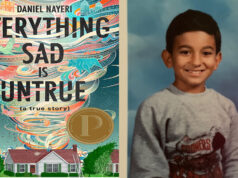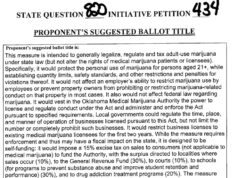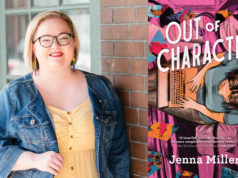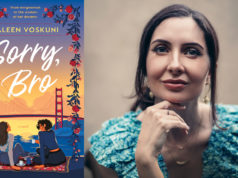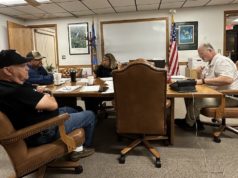
Earlier this month, the University of Oklahoma Press published award-winning novelist Rilla Askew’s first nonfiction book, Most American: Notes from a Wounded Place. In it, she makes the case that, “Oklahoma is America: we are its microcosm; our story is America’s story, intensified to the hundredth power.”
I don’t know that we are that exponentially more representative of America’s “conservativism and our revolutionary impulses,” but Most American is a literary memoir that nails so many paradoxes of our history and current conflicts. Askew writes:
Oklahomans reflect the whole of the American paradox: our selflessness and keen self-absorption. … We are a generous people, compassionate, hardworking, self-sacrificing, capable of great heroism, decent. Violent. Filled with prejudice. Profoundly and pridefully independent. Sentimental.
Askew grew up in northeastern Oklahoma and has roots in southeastern Oklahoma, aka Little Dixie. Askew has deep ties in Tulsa, where the Midwest meets the South and West, and now she teaches at the University of Oklahoma, just a few miles east of the Southern Great Plains. She is well-suited for what Choctaw writer LeAnne Howe described as “tribalography.”
Oklahoma, ‘the very gut of the nation’
Askew counter-intuitively explains, “Oklahoma is such an extreme distillation of what has taken place on this continent over the past five hundred years that it is nearly unrecognizable.” We got the nation’s attention in the aftermath of the 1995 Murrah Building bombing. It, like 9/11, “encapsulates, exaggerates, intensifies America’s past.” Our response, known as the “Oklahoma standard,” exemplified “the better part of human nature – the best of what’s worst and best in us.”
Oklahoma was also dubbed “America’s Heartland,” but as Askew concludes, “they got the idea right but the anatomy wrong.” Our state is “like an illegitimate child.” Oklahoma is “the viscera, the underbelly, the very gut of the nation.”
Askew praises “the pioneer grit of my forebears.” But, “ground down by poverty and grief, [it] may turn those same pioneers mean as a snake.”
Historical scars rooted in ‘loss and expectation’
Our history is rooted in both “loss and expectation.” Oklahoma produced the largest socialist movement, per capita, in American history. A less effective resistance, the multi-racial anti-war Green Corn rebellion in Seminole County, occurred as the political repression of World War I was imposed. Students have long been encouraged to sing “This Land Is Your Land” while being taught to be embarrassed by Woody Guthrie.
Like the nation as a whole, our “collective forgetfulness” makes it difficult to face the obvious fact that slavery was not America’s and Oklahoma’s only “original sin.” We also were born of “ethnic cleansing.”
Oklahoma contributed a disproportionate percentage of soldiers who fought in Vietnam, Iraq and Afghanistan, which are our longest modern wars. Askew reminds us, however, that America’s Indian wars started in 1622 and lasted 300 years, ending with the final Apache raid of 1924. The last battle occurred during the time of the (unrelated) mass murders of Oklahoma Osages when whites killed their own Indian wives in order to steal oil leases.
Our Jim Crow state also had more female Ku Klux Klan members than any other state. It was shockingly successful in burying the history of the 1921 Tulsa race “riot.” Actually, the murderous assault on Black Wall Street began as “a race war and turned into a pogrom.” Askew places the mass murder in perspective. It was “as if a seventh of the white population of Manhattan had suddenly swept north into Harlem at the height of the Harlem Renaissance and burned it to the ground.”
‘One cannot repent what one will not own’
Askew’s conclusions are first foreshadowed by the Murrah bombing and then the destruction of the World Trade Center, which made Americans “at once meaner and kinder, more suspicious and more unified, wounded and scarred and less free.” Both her friendships with the late James Foley, as well as a conversation with enlistees on the way to Army training at Ft. Sill, preview 21st-century dichotomies.
Historically, Oklahomans have said, “Why look at these buried sorrows? … We don’t, as a state or a nation, do such things anymore. Or so we tell ourselves.”
“On the other hand,” Askew writes, we continue to “subscribe to a pitiless, senseless western myth of redemption through violence.”
Askew then concludes, “I see a new willingness here, in this meat cleaver-shaped place in the viscera of America, to acknowledge the shameful parts of history, the terrible parts that for so many years we have denied.” But we need to go further. “One cannot repent what one will not own.”
Most American reminds us that “half of the truth is no truth at all.” She then asks what would happen if we would “turn from sentiment to the task of owning our whole history; if we were to make amends for past wrongs.”
“If we were to teach our children the whole truth of who we are and who we have been,” Askew believes, “Oklahoma could become the conscience of the nation.”









